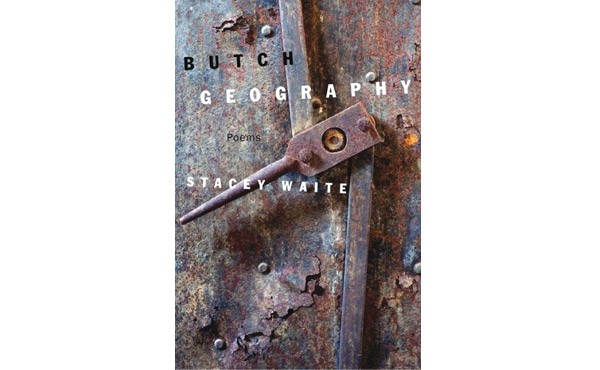Until the time in New Orleans I lost a pool game to a drag queen named Goddess who wore high heels and a little black dress, I hadn't thought much about gender identity. In Stacey Waite's first full-length poetry collection, Butch Geography (Tupelo Press), however, the matter is central. Waite spends 88 pages of well-crafted, perspective-changing poetry searching for answers through the speakers' meditations on identity and androgyny.
For decades, poetry has sheltered and strengthened individual expressions that didn't fit mainstream mindsets, notably the black arts, gay and feminist movements. Waite's work here seems a natural progression, giving voice to a population often caricatured by talk shows and reality TV.
While the subject matter in Butch Geography isn't run-of-the-mill, Waite — a former student and instructor at Pitt who now teaches at the University of Nebraska — uses a steady and contemplative voice, even when the speaker doesn't have all the answers to the questions being asked. And it's Waite's use of speaker as changeling, searching for identity, that makes this work so compelling. Waite identifies as neither male nor female, and the speakers are often mistaken in public for one gender or the other.
Taken for male, the speaker sometimes relishes the recognition as a man, and other times feels unable to fit in. In "On the Occasion of Being Mistaken for a Man by the Cashier in the Drive-Thru Window at a Wendy's ...." Waite writes, "When a woman does it, I feel more like a man. / Simone at the Wendy's drive-thru makes me feel more like a man when she says, ‘Out of ten, sir?' / and leans her breasts atop the little shelf, smiles / at the folding windows. ‘You have gorgeous hands,' / I say. I can't even see her hands ..."
Waite's willingness to challenge and inhabit different roles keeps the reader off-balance. It's much how the speaker feels at times, remarking in "Choke," "I, too, am a kind of mother. // I keep giving birth to identity. / And each time it holds me / by the throat until I say words." While these themes of "sexual plasticity" can be a bit overwhelming at times, this is no manifesto. Instead, these poems leave this reader, a service-industry vet, to consider how it felt when I've misaddressed others before.















